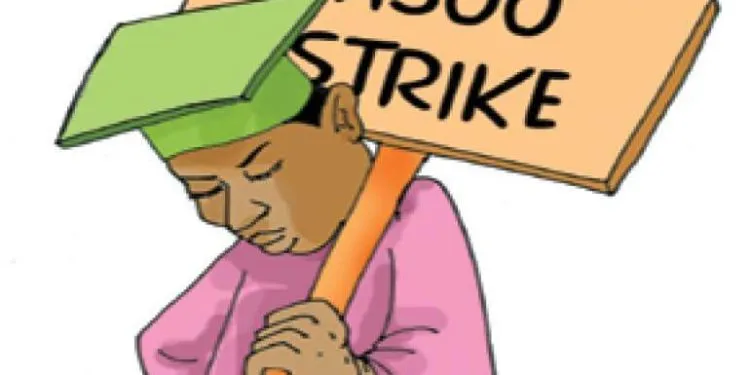*As committee recommends N2m monthly salary for professors, other incentives
*Say adjunct lectureship should be banned
*It’s blackmail to make mere recommendations public, says ASUU
By Ezechukwu Chidozie
The five-month old industrial action embarked on by the Academic Staff Union of Universities (ASUU) may come to an end following wide range recommendations of its committee on the 2009 agreements with university-based unions set up to resolve the dispute.
But it all depends on the sincerity of government to implement the recommendations which has been the crux of the matter lingering the dispute.
By the recommendations, a professor in the Nigerian university system will earn N2 million monthly salary, if the Federal Government accepts the recommendations.
The committee also recommended improved yearly allowances for professors and other cadre of academics in the education system.
The allowances are for postgraduate supervision, field trip, responsibility and hazard, examination/timekeeper and teaching practice/industrial supervision.
Others are honoraria for post-graduate thesis (oral exam), external modulation programmes for undergraduate/post-graduate students, external assessment of readers and postgraduate study grants.
The details are contained in a draft proposal of the renegotiated 2009 agreement submitted to the Presidential Committee on Salaries and Wages by Prof Nimi Briggs, chairman of the Renegotiation Committee of the 2009 pacts.
Briggs said: “All the documents have been submitted to the Minister of Education, Alhaji Adamu Adamu.”
Asked to confirm the recommendations, ASUU President, Prof. Emmanuel Osodeke said: ” Quoting figures in a document that has not been signed is against the tenets of collective bargaining agreement.
“Anybody who gave out those figures is breaching all the rules about collective bargaining.
“Until the draft agreement is signed, we cannot release the figures.
“If the government has a problem with the figures, they should come back to us. You don’t blackmail people during negotiation. You don’t go to the public to churn out fake figures during negotiations.
“If you have a problem with what your committee negotiated, you come back to the table and renegotiate it.
“And that is why the committee went back to the government to say give us permission to sign or raise issues if you have. If you have issues you come back to the committee and not go to the public.
“If the committee has finished its work and submitted its report to the government, why are they coming with blackmail? It is against all tenets of negotiations.”
It was however learnt that the Briggs Committee has been mandated to go back to the drawing board to produce a “reasonable, practicable wage increase, which will reflect relativity of every worker in the educational sector – academic and non-academic.”
A ministry source had accused the committee of proposing an impracticable increase in the university wage structure.
The source also said that the committee was impartial as it raised the pay and allowances of university teachers by 180 per cent while adding only 10 per cent to those of the non-teaching members of staff.
Ngige had in a statement on Wednesday accused the committee of excluding the relevant advisory government arms like the Ministries of Finance, Education, Labour and Employment, Budget Office of the Federation, Office of the Head of Service of the Federation, National Salaries Income and Wages Commission from the sittings of the committee.
He argued that their “exclusion from the sittings of Prof. Nimi Briggs easily explains its non-inclusive and one-sided proposal, recommending sky-high, impracticable figures in salaries and allowances that are clearly beyond the capacity of the Federal Government.”
It was gathered that the Presidential Committee on Salaries has taken a decision for a holistic, all-encompassing and integrated review of the salaries and allowances of the entire educational sector – universities, polytechnics and colleges of education.


















